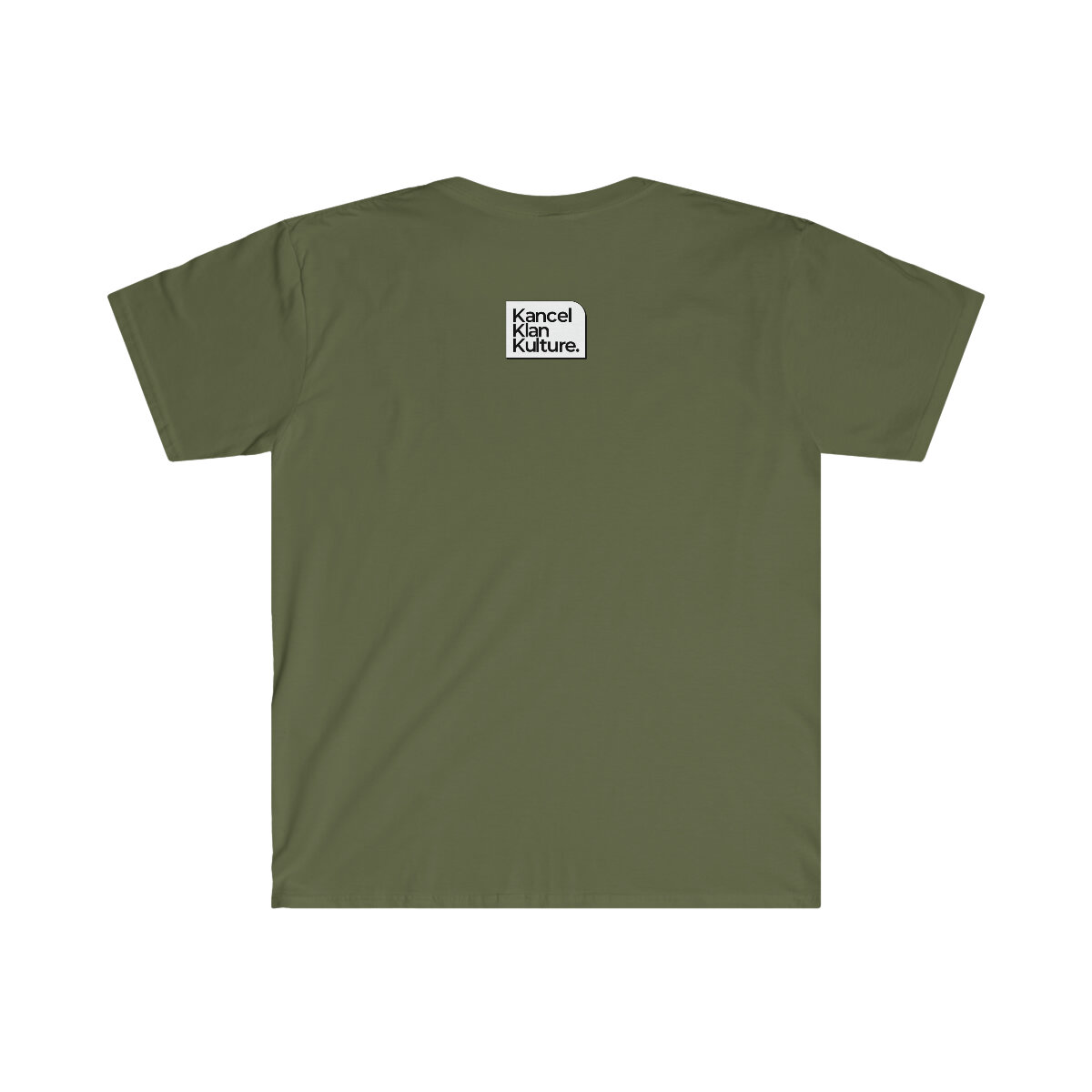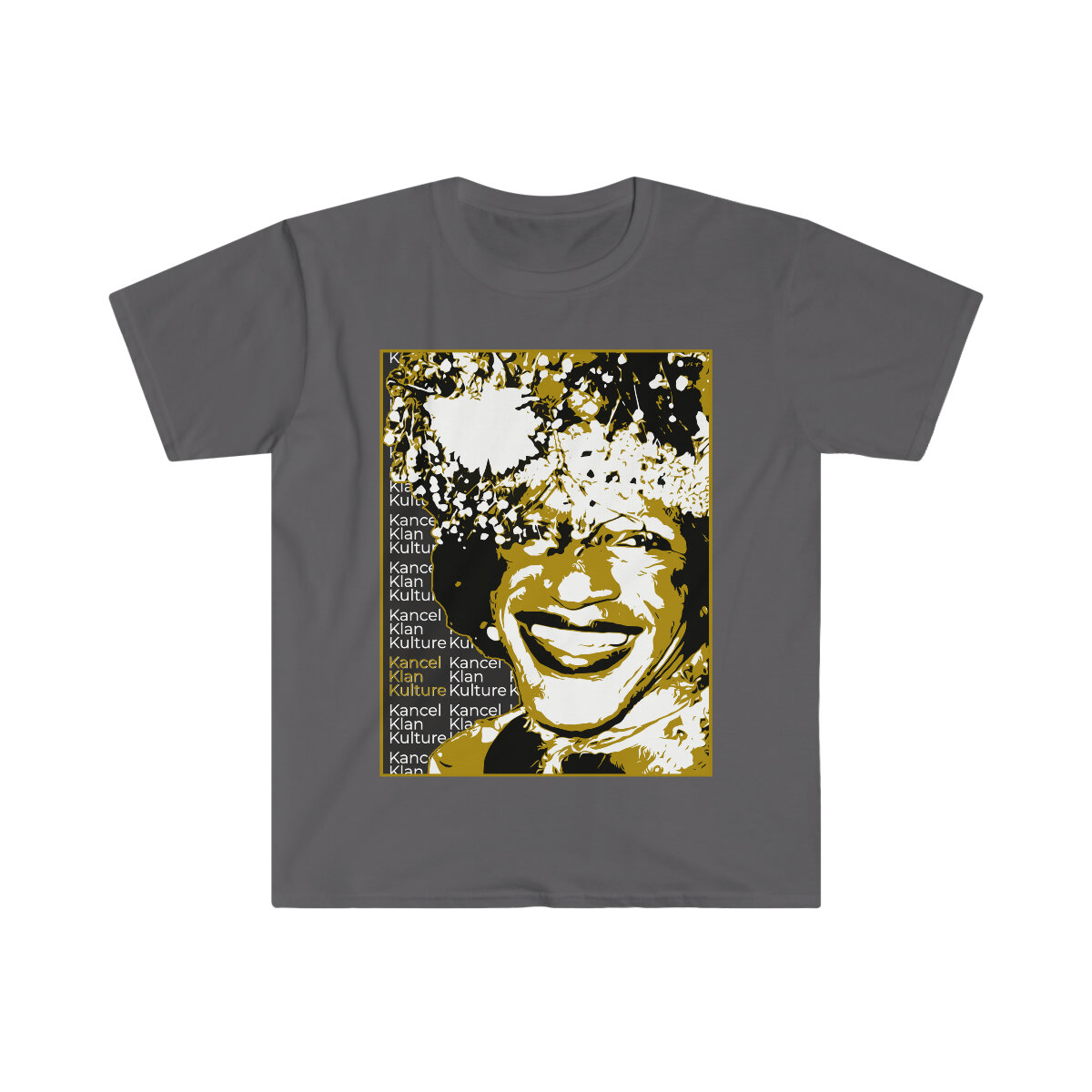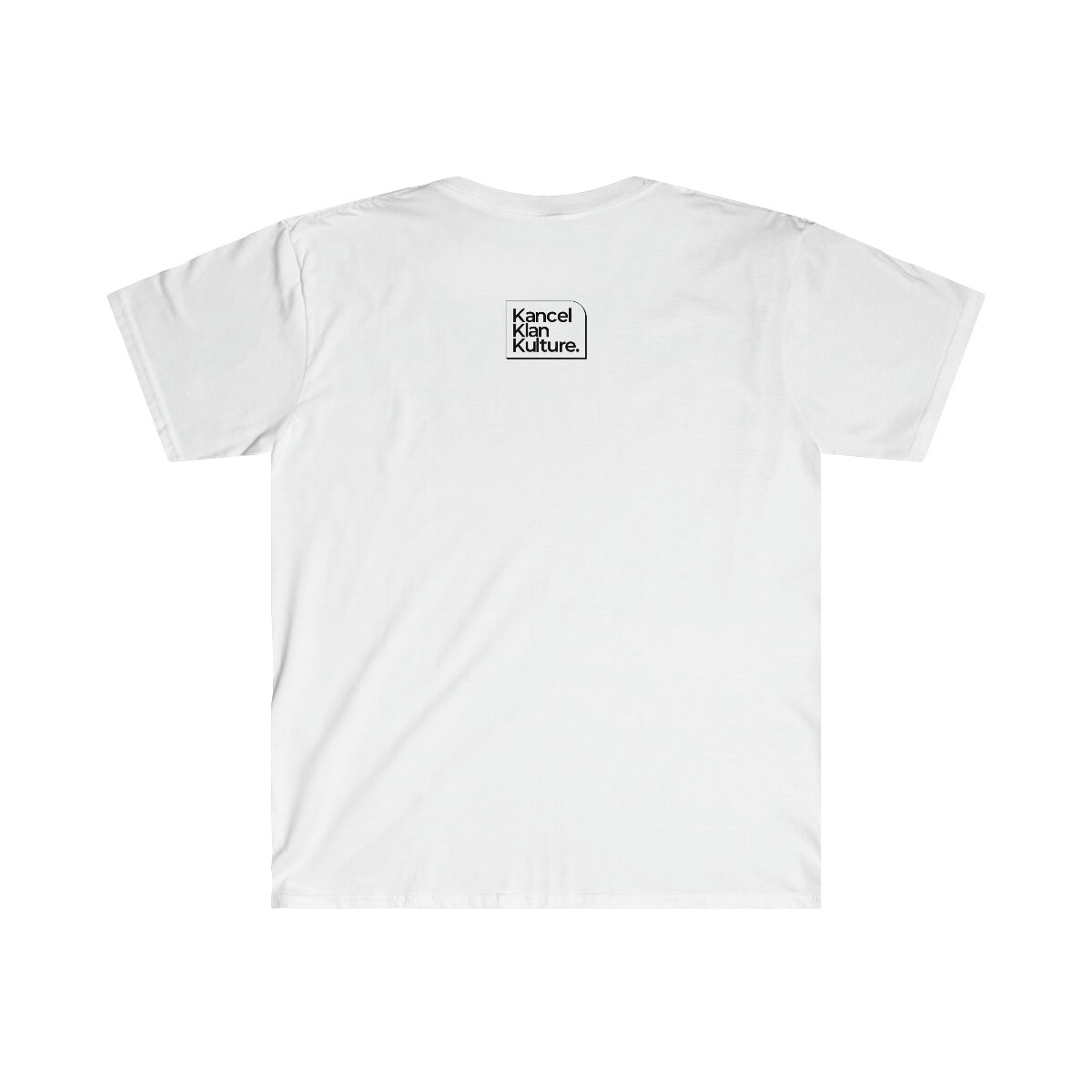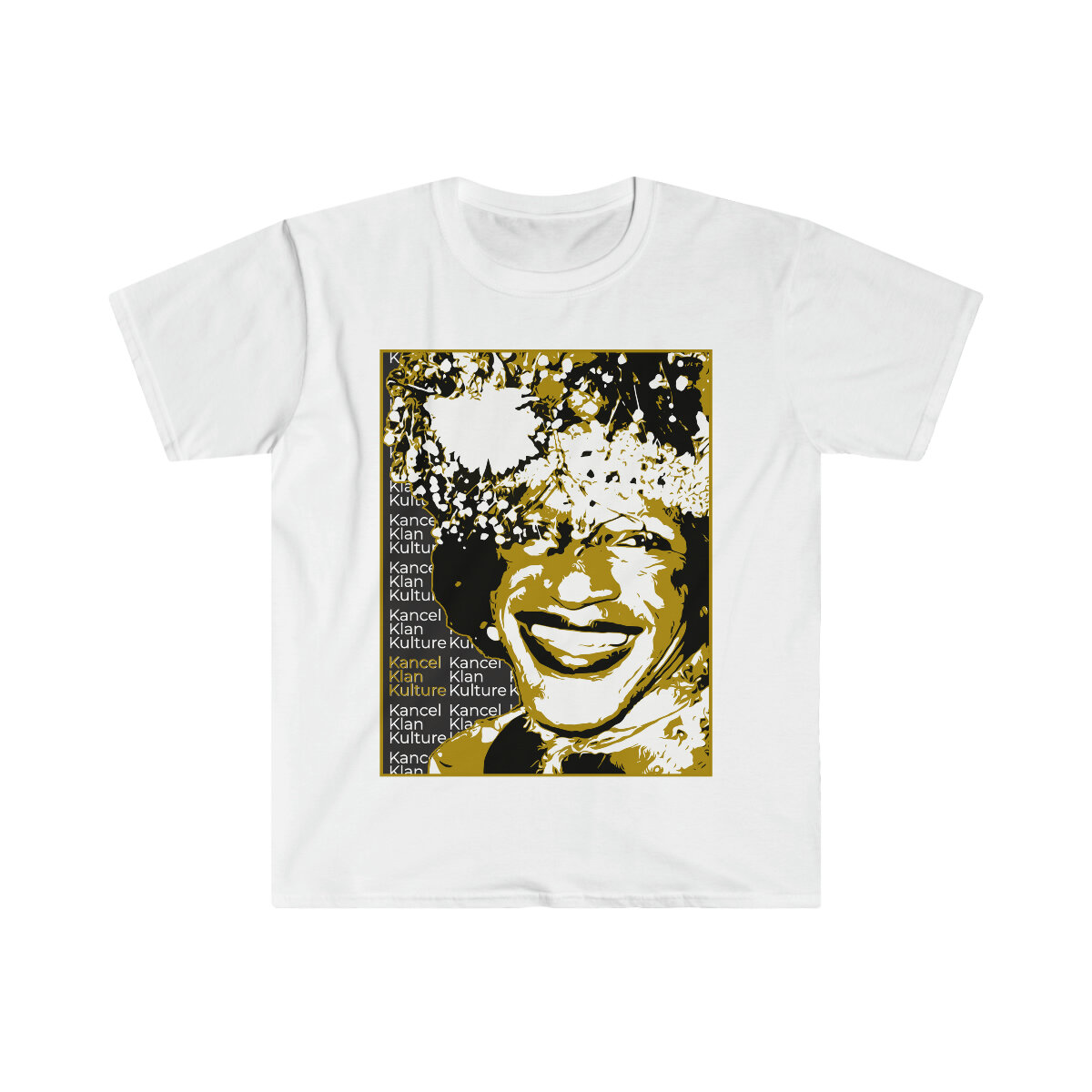Pay Them Your Mind Unisex Ultra Cotton Tee
Marsha P. Johnson (August 24, 1945 – July 6, 1992), born and also known as Malcolm Michaels Jr., was an American gay liberation activist and self-identified drag queen. Known as an outspoken advocate for gay rights, Johnson was one of the prominent figures in the Stonewall uprising of 1969. Though some have mistakenly credited Johnson for starting the riots, Johnson was always forthcoming about having not been present when the riots began.
Johnson was a founding member of the Gay Liberation Front and co-founded the radical activist group Street Transvestite Action Revolutionaries (S.T.A.R.), alongside close friend Sylvia Rivera. Johnson was also a popular figure in New York City's gay and art scene, modeling for Andy Warhol, and performing onstage with the drag performance troupe Hot Peaches. Johnson was known as the "mayor of Christopher Street" due to being a welcoming presence in the streets of Greenwich Village. From 1987 through 1992, Johnson was an AIDS activist with ACT UP.
Following the Stonewall uprising, Johnson joined the Gay Liberation Front and was active in the GLF Drag Queen Caucus. On the first anniversary of the Stonewall rebellion, on June 28, 1970, Johnson marched in the first Gay Pride rally, then called the Christopher Street Liberation Day. One of Johnson's most notable direct actions occurred in August 1970, staging a sit-in protest at Weinstein Hall at New York University alongside fellow GLF members after administrators canceled a dance when they found out was sponsored by gay organizations. Shortly after that, Johnson and close friend Sylvia Rivera co-founded the Street Transvestite Action Revolutionaries (STAR) organization (initially titled Street Transvestites Actual Revolutionaries). The two of them became a visible presence at gay liberation marches and other radical political actions. In 1973, Johnson and Rivera were banned from participating in the gay pride parade by the gay and lesbian committee who were administering the event stating they "weren't gonna allow drag queens" at their marches claiming they were "giving them a bad name". Their response was to march defiantly ahead of the parade. During a gay rights rally at New York City Hall in the early '70s, photographed by Diana Davies, a reporter asked Johnson why the group was demonstrating, Johnson shouted into the microphone, "Darling, I want my gay rights now!"
Shortly after the 1992 Gay pride parade, Johnson's body was discovered floating in the Hudson River.[5] Police initially ruled the death a suicide, but Johnson's friends and other members of the local community insisted Johnson was not suicidal and noted that the back of Johnson's head had a massive wound.
Johnson's suspicious death occurred during a time when Anti-LGBT violence was at a peak in New York City, including bias crime by police. Johnson was one of the activists who had been drawing attention to this epidemic of violence against the community, participating in marches and other activism to demand justice for victims, and an inquiry into how to stop the violence. Johnson had been speaking out against the "dirty cops" and elements of organized crime that many believed responsible for some of these assaults and murders, and had even voiced the concern that some of what Randy Wicker was stirring up, and pulling Johnson into, "could get you murdered." This added to the suspicions of foul play and possible murder.
Johnson's body was cremated and, following a funeral at a local church, and a march down Seventh Avenue, friends released Johnson's ashes over the Hudson River, off the Christopher Street Piers. Police allowed Seventh Avenue to be closed while Johnson's ashes were carried to the river. After the funeral, a series of demonstrations and marches to the police precinct took place, to demand justice for Johnson.
This unisex t-shirt commemorating her role as a Stonewall vanguard comes in a variety of colors. The shoulders are tapped for a good upper-body fit. There are no side seams, ensuring a clean, unbroken flow. The collar has ribbed knitting for improved elasticity. The materials that went into this product are sustainably sourced and economically friendly.
| S | M | L | XL | 2XL | 3XL | 4XL | 5XL | |
|---|---|---|---|---|---|---|---|---|
| Width, in | 18.00 | 20.00 | 22.00 | 24.00 | 26.00 | 28.00 | 30.00 | 32.00 |
| Length, in | 28.00 | 29.00 | 30.00 | 31.00 | 32.00 | 33.00 | 34.00 | 35.00 |
| Sleeve length from center back, in | 15.62 | 17.37 | 18.75 | 20.00 | 21.50 | 22.87 | 24.25 | 25.50 |
.: 100% Cotton (fiber content may vary for different colors)
.: Medium fabric (6.0 oz/yd² (203 g/m²))
.: Classic fit
.: Tear-away label
.: Runs bigger than usual
Marsha P. Johnson (August 24, 1945 – July 6, 1992), born and also known as Malcolm Michaels Jr., was an American gay liberation activist and self-identified drag queen. Known as an outspoken advocate for gay rights, Johnson was one of the prominent figures in the Stonewall uprising of 1969. Though some have mistakenly credited Johnson for starting the riots, Johnson was always forthcoming about having not been present when the riots began.
Johnson was a founding member of the Gay Liberation Front and co-founded the radical activist group Street Transvestite Action Revolutionaries (S.T.A.R.), alongside close friend Sylvia Rivera. Johnson was also a popular figure in New York City's gay and art scene, modeling for Andy Warhol, and performing onstage with the drag performance troupe Hot Peaches. Johnson was known as the "mayor of Christopher Street" due to being a welcoming presence in the streets of Greenwich Village. From 1987 through 1992, Johnson was an AIDS activist with ACT UP.
Following the Stonewall uprising, Johnson joined the Gay Liberation Front and was active in the GLF Drag Queen Caucus. On the first anniversary of the Stonewall rebellion, on June 28, 1970, Johnson marched in the first Gay Pride rally, then called the Christopher Street Liberation Day. One of Johnson's most notable direct actions occurred in August 1970, staging a sit-in protest at Weinstein Hall at New York University alongside fellow GLF members after administrators canceled a dance when they found out was sponsored by gay organizations. Shortly after that, Johnson and close friend Sylvia Rivera co-founded the Street Transvestite Action Revolutionaries (STAR) organization (initially titled Street Transvestites Actual Revolutionaries). The two of them became a visible presence at gay liberation marches and other radical political actions. In 1973, Johnson and Rivera were banned from participating in the gay pride parade by the gay and lesbian committee who were administering the event stating they "weren't gonna allow drag queens" at their marches claiming they were "giving them a bad name". Their response was to march defiantly ahead of the parade. During a gay rights rally at New York City Hall in the early '70s, photographed by Diana Davies, a reporter asked Johnson why the group was demonstrating, Johnson shouted into the microphone, "Darling, I want my gay rights now!"
Shortly after the 1992 Gay pride parade, Johnson's body was discovered floating in the Hudson River.[5] Police initially ruled the death a suicide, but Johnson's friends and other members of the local community insisted Johnson was not suicidal and noted that the back of Johnson's head had a massive wound.
Johnson's suspicious death occurred during a time when Anti-LGBT violence was at a peak in New York City, including bias crime by police. Johnson was one of the activists who had been drawing attention to this epidemic of violence against the community, participating in marches and other activism to demand justice for victims, and an inquiry into how to stop the violence. Johnson had been speaking out against the "dirty cops" and elements of organized crime that many believed responsible for some of these assaults and murders, and had even voiced the concern that some of what Randy Wicker was stirring up, and pulling Johnson into, "could get you murdered." This added to the suspicions of foul play and possible murder.
Johnson's body was cremated and, following a funeral at a local church, and a march down Seventh Avenue, friends released Johnson's ashes over the Hudson River, off the Christopher Street Piers. Police allowed Seventh Avenue to be closed while Johnson's ashes were carried to the river. After the funeral, a series of demonstrations and marches to the police precinct took place, to demand justice for Johnson.
This unisex t-shirt commemorating her role as a Stonewall vanguard comes in a variety of colors. The shoulders are tapped for a good upper-body fit. There are no side seams, ensuring a clean, unbroken flow. The collar has ribbed knitting for improved elasticity. The materials that went into this product are sustainably sourced and economically friendly.
| S | M | L | XL | 2XL | 3XL | 4XL | 5XL | |
|---|---|---|---|---|---|---|---|---|
| Width, in | 18.00 | 20.00 | 22.00 | 24.00 | 26.00 | 28.00 | 30.00 | 32.00 |
| Length, in | 28.00 | 29.00 | 30.00 | 31.00 | 32.00 | 33.00 | 34.00 | 35.00 |
| Sleeve length from center back, in | 15.62 | 17.37 | 18.75 | 20.00 | 21.50 | 22.87 | 24.25 | 25.50 |
.: 100% Cotton (fiber content may vary for different colors)
.: Medium fabric (6.0 oz/yd² (203 g/m²))
.: Classic fit
.: Tear-away label
.: Runs bigger than usual
Marsha P. Johnson (August 24, 1945 – July 6, 1992), born and also known as Malcolm Michaels Jr., was an American gay liberation activist and self-identified drag queen. Known as an outspoken advocate for gay rights, Johnson was one of the prominent figures in the Stonewall uprising of 1969. Though some have mistakenly credited Johnson for starting the riots, Johnson was always forthcoming about having not been present when the riots began.
Johnson was a founding member of the Gay Liberation Front and co-founded the radical activist group Street Transvestite Action Revolutionaries (S.T.A.R.), alongside close friend Sylvia Rivera. Johnson was also a popular figure in New York City's gay and art scene, modeling for Andy Warhol, and performing onstage with the drag performance troupe Hot Peaches. Johnson was known as the "mayor of Christopher Street" due to being a welcoming presence in the streets of Greenwich Village. From 1987 through 1992, Johnson was an AIDS activist with ACT UP.
Following the Stonewall uprising, Johnson joined the Gay Liberation Front and was active in the GLF Drag Queen Caucus. On the first anniversary of the Stonewall rebellion, on June 28, 1970, Johnson marched in the first Gay Pride rally, then called the Christopher Street Liberation Day. One of Johnson's most notable direct actions occurred in August 1970, staging a sit-in protest at Weinstein Hall at New York University alongside fellow GLF members after administrators canceled a dance when they found out was sponsored by gay organizations. Shortly after that, Johnson and close friend Sylvia Rivera co-founded the Street Transvestite Action Revolutionaries (STAR) organization (initially titled Street Transvestites Actual Revolutionaries). The two of them became a visible presence at gay liberation marches and other radical political actions. In 1973, Johnson and Rivera were banned from participating in the gay pride parade by the gay and lesbian committee who were administering the event stating they "weren't gonna allow drag queens" at their marches claiming they were "giving them a bad name". Their response was to march defiantly ahead of the parade. During a gay rights rally at New York City Hall in the early '70s, photographed by Diana Davies, a reporter asked Johnson why the group was demonstrating, Johnson shouted into the microphone, "Darling, I want my gay rights now!"
Shortly after the 1992 Gay pride parade, Johnson's body was discovered floating in the Hudson River.[5] Police initially ruled the death a suicide, but Johnson's friends and other members of the local community insisted Johnson was not suicidal and noted that the back of Johnson's head had a massive wound.
Johnson's suspicious death occurred during a time when Anti-LGBT violence was at a peak in New York City, including bias crime by police. Johnson was one of the activists who had been drawing attention to this epidemic of violence against the community, participating in marches and other activism to demand justice for victims, and an inquiry into how to stop the violence. Johnson had been speaking out against the "dirty cops" and elements of organized crime that many believed responsible for some of these assaults and murders, and had even voiced the concern that some of what Randy Wicker was stirring up, and pulling Johnson into, "could get you murdered." This added to the suspicions of foul play and possible murder.
Johnson's body was cremated and, following a funeral at a local church, and a march down Seventh Avenue, friends released Johnson's ashes over the Hudson River, off the Christopher Street Piers. Police allowed Seventh Avenue to be closed while Johnson's ashes were carried to the river. After the funeral, a series of demonstrations and marches to the police precinct took place, to demand justice for Johnson.
This unisex t-shirt commemorating her role as a Stonewall vanguard comes in a variety of colors. The shoulders are tapped for a good upper-body fit. There are no side seams, ensuring a clean, unbroken flow. The collar has ribbed knitting for improved elasticity. The materials that went into this product are sustainably sourced and economically friendly.
| S | M | L | XL | 2XL | 3XL | 4XL | 5XL | |
|---|---|---|---|---|---|---|---|---|
| Width, in | 18.00 | 20.00 | 22.00 | 24.00 | 26.00 | 28.00 | 30.00 | 32.00 |
| Length, in | 28.00 | 29.00 | 30.00 | 31.00 | 32.00 | 33.00 | 34.00 | 35.00 |
| Sleeve length from center back, in | 15.62 | 17.37 | 18.75 | 20.00 | 21.50 | 22.87 | 24.25 | 25.50 |
.: 100% Cotton (fiber content may vary for different colors)
.: Medium fabric (6.0 oz/yd² (203 g/m²))
.: Classic fit
.: Tear-away label
.: Runs bigger than usual































